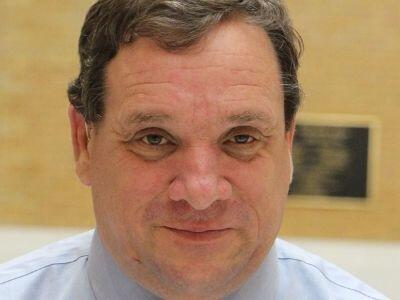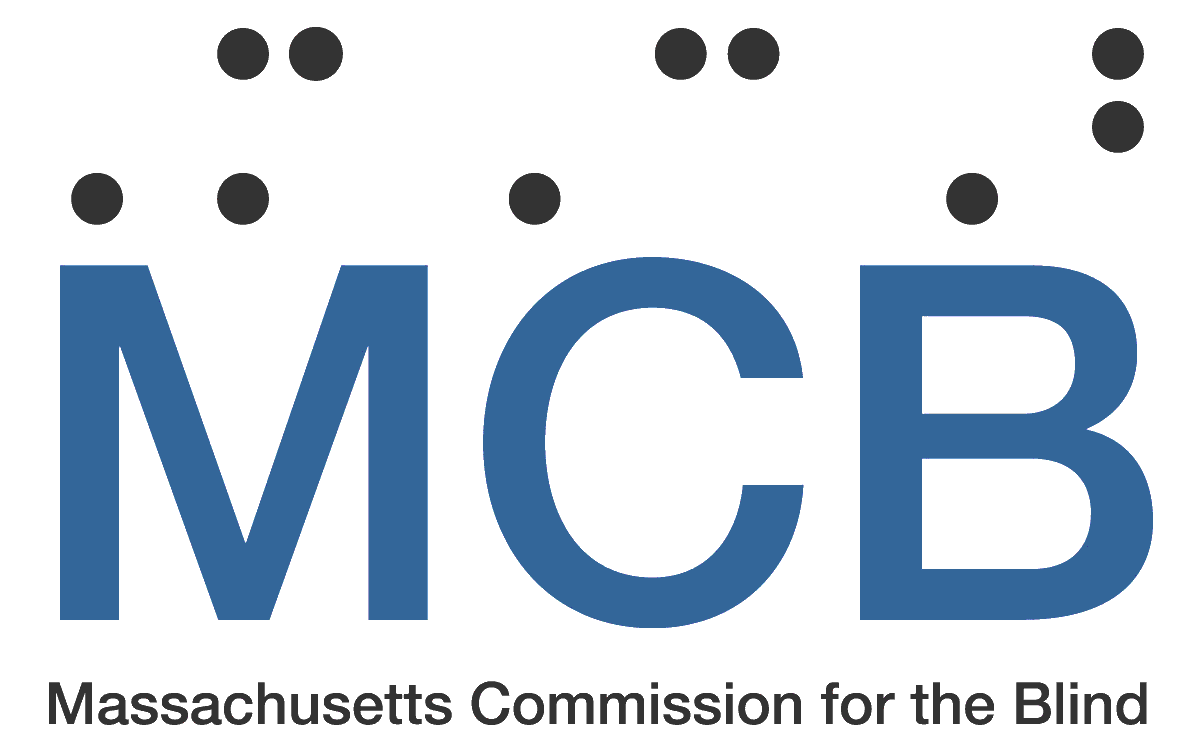- Massachusetts Commission for the Blind

By Owen Devlin
Q&A with Carl Richardson, ADA Coordinator/504/Diversity Officer for the Massachusetts State House
Carl Richardson identifies as DeafBlind and serves as the ADA Coordinator/504/Diversity Officer for the Massachusetts State House. In this role, Carl works with the Governor and Executive branch, as well as with members of the legislature and leadership from state agencies to serve individuals with disabilities across the Commonwealth, ensuring that the State House is an accessible, inclusive, and welcoming environment.
1. Tell us a little bit about yourself. Where are you from? What are some of your hobbies?
"In terms of my hobbies, I am a huge film and television buff. I watch a lot of movies, and I do that through the use of closed captioning and audio description. My wife and I travel down to the Cape a lot, and walk our dog. I am also involved with several organizations in my free time, too. Specifically, I am Co-chair of Audio Description for the American Council of the Blind. Throughout my time with the American Council of the Blind, I have had the opportunity to work with online streaming platforms including Disney, Amazon, Paramount Plus, and HBO Max, to ensure that closed captioning and audio description features are implemented, and are easily accessible for Deafblind individuals. In addition, I also record a bi-monthly podcast entitled: “Picture This,” where I educate listeners about the importance of audio description. Audio description is the use of narration to describe important events throughout a movie or television show."
2. What is your role at the Massachusetts State House?
"At the Massachusetts State House, where I have worked since 2007, I currently serve as Coordinator of the American with Disabilities Act. Within this role, It is my job to ensure that all programs, and activities at the State House are fully accessible for individuals of all abilities. In order to make this happen, I work with the Massachusetts Legislature, the Executive Branch, and the various stakeholders within the community."
3. How did you become involved with this position?
"In the early 2000’s, after a lawsuit was filed by individuals (some of whom were deaf) with the State Legislature about the lack of accessible resources within the State House, the Legislature responded by creating the position I am currently in. Due to my past experience in advocating for the needs of disabled individuals, I was hired by the State House to help assist in this area. Since beginning my position at the State House, I have created accommodations for individuals with additional needs, including accessible hearing rooms, and accessible ramps for people in wheelchairs, so they can navigate the building more easily. The security staff that work inside the building are very friendly, and are willing to offer their assistance as necessary."
4. Can you tell me more about your personal connection to the DeafBlind community?
"Personally, I identify as a DeafBlind individual because I have a dual loss of both vision and hearing. I currently wear two hearing aids, and use a guide dog when navigating around the community. I consider myself DeafBlind in that I have a dual sensory loss that makes the world a more challenging place. I am not fluent in sign language, as my main method of communication is through oral expression."
5. Can you tell us more about your visual impairment?
"It is a progression. Early in my life, I went to a deaf school, so that I could learn how to talk. Soon afterwards, I received my first pair of hearing aids, and I made sure I was first in every room. For instance, If I was in a classroom, I would sit in front. If I went to parties, I would put myself in a place where everyone would notice me, too. As my vision continued to worsen, I lost the ability to read lips, and had to adapt by using microphones and headphones. I started to introduce myself to Jaws and other screen reader applications as my vision worsened even more. If I need help, or don’t understand what is going on around me, I will ask for help. I find that most people are willing to offer their assistance. On an emotional level, it was very difficult when I was younger having to recognize the fact that I could no longer read and watch movies in the traditional way, but I have accepted my disability as a fact of life at this point."
6. Do you have any tools that you use when traveling around the community? If so, what kinds?
"In addition to my guide dog, I am also a cane user. I travel with my dog on the train and bus. In addition, I use Bluetooth hearing aids that allow me to talk to my phone using voiceover. Other tools such as magnification, and bump dots help me out as well. I am also very fortunate as my wife and I can afford to buy any accommodation for our home if necessary."
7. Why do you feel that spreading awareness about the DeafBlind community is important?
"I think it is important on a number of levels. We need to recognize the fact that there are quite a few people with a dual sensory loss. It is also important to recognize the large spectrum associated with Deafblindness, and it is also important to recognize the fact that being DeafBlind is not the end of the world. A person can have a very successful, and productive life in this situation. They can cope with their disability, and can thrive to succeed. This is why I feel honored to be interviewed as I hope it can encourage other DeafBlind individuals who are hearing my story that they can achieve their goals as I have. I consider myself one of the luckiest people in the world as I have a loving wife, I own my own home, and I am part of an incredible family who support one another. I feel that I have a lot to offer people, and I want to make sure I am a good role model for people others around me."
8. Do you have any advice for individuals who are having a difficult time adjusting to life with a visual and/or hearing impairment?
"My advice for individuals with a visual and/or hearing impairment is to seek out a role model in the DeafBlind community who has achieved great things. It is important to stay around positive people, too. Also, it is important to remember that you are never alone. Everybody has challenges they have to deal with, but what sets them apart from others is how they handle their challenges."
